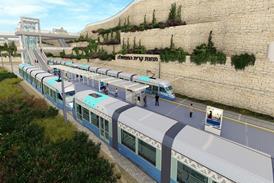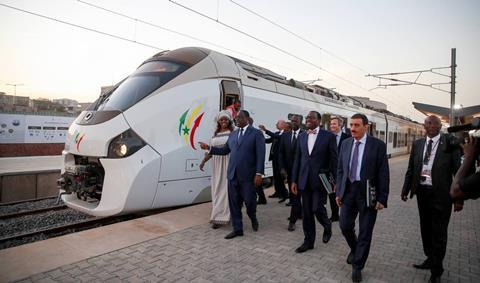
SENEGAL: President Macky Sall finally inaugurated the first phase of the Dakar TER project on the evening of December 27. Previously planned for December 24, the event was delayed for three days to ensure it did not clash with Christmas festivities.
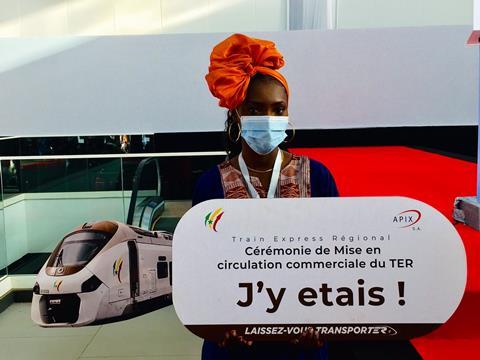
The president travelled over the 36 km from Dakar to Diamniadio, stopping en route to visit the rolling stock maintenance depot at Colobane. The main ceremony was staged at the new station at Diamniadio, interim terminus of TER services from the main station at Dakar.
During his speech the president called on the local population to take ownership of the TER service and to look after it for future generations. Describing the project as ‘a huge revolution for our urban and inter-urban transport system’, Sall said ‘we have chosen to make a technological leap taking us directly to the peak of progress, choosing a fast railway with the most modern technologies’.
The president acknowledged that residents along the alignment had suffered serious disruption, with many needing to be rehoused elsewhere. Compensation measures had been taken, he said, including the provision of infrastructure improvements in the communes affected by the project.
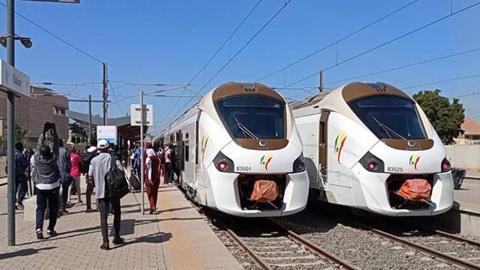
TER services are timetabled to run at regular intervals from 05.00 to 22.00. Transport Minister Mansour Faye announced that the trains could be used free of charge until January 13, after which fares will be levied. Operations are in the hands of SNCF subsidiary Seter, which has been awarded a management, operations and maintenance contract that can be renewed after five years. Around 1 000 people are employed to run the line, including 16 expatriate staff.
Rolling stock consists of a fleet of 15 four-car Coradia Polyvalent electro-diesel trainsets supplied by Alstom. Designed to run at up to 160 km/h, they use two 1 435 mm gauge electrified tracks parallel to the 1 000 mm gauge main line that until 2018 carried international trains to and from Bamako in Mali.
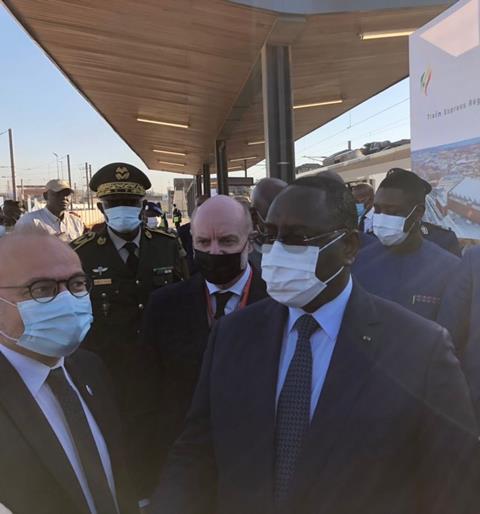
The cost of the first phase of the Dakar TER project is now put at CFAFr780bn. The 25-year funding package included CFAFr197bn from the Islamic Development Bank, CFAFr120bn from the African Development Bank plus CFAFr196∙6bn from the government of France and various French institutions; the remainder was sourced from the Senegalese government. A significant rationale for the project is a reduction in road traffic congestion which is estimated to cost the country €152m a year.
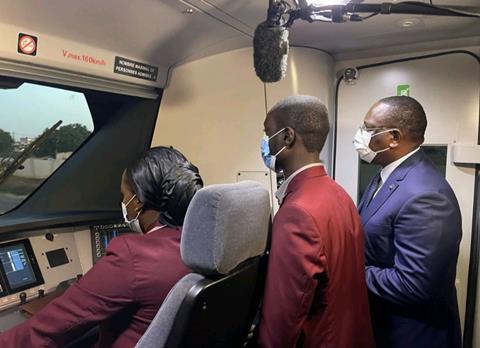
A second phase of the project will see TER services extended by 19 km to Blaise Diagne airport at a future date. During the opening event a representative from the Islamic Development Bank offered to provide CFAFr6bn towards the airport extension.
In January 2019 President Sall attended an elaborate ceremony in Dakar to mark completion of initial running trials with the first TER trainsets. At that time an opening for commercial services was envisaged in October or November of the same year, but the project has since been delayed several times, partly because of problems associated with the Covid-19 pandemic.




